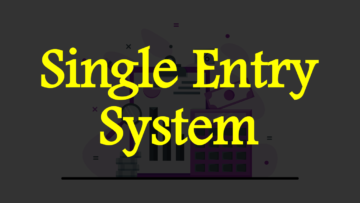A lot of transactions are done every day in business which need to be systematically recorded and managed because all the transactions are important for the business. Most of the transactions in any business are related to cash, bank, sale, and purchase, etc., if all these transactions are recorded together in one book, then there will be difficulty in management, that is why transactions which are done repeatedly or transactions whose number is large, are recorded in separate books, which are called subsidiary books.
Using or not using subsidiary books has its advantages and disadvantages. If the business feels that it will benefit from the use of subsidiary books, then it will use it otherwise not. It is not mandatory for the business to use subsidiary books, it is completely optional, the business may or may not use it as per its convenience.
Note: Due to increasing technology, manual work is decreasing.

Table of Contents
Advantages of Subsidiary Books
Following are the advantages of subsidiary books:
1. Division of Work:
The use of subsidiary books helps in division of work because under this, transactions of different nature are recorded and managed in separate books by the concerned person. For example, sale transactions are recorded in the sales book by the concerned person, similarly purchase transactions are recorded in the purchase book by the concerned person.
2. Specialization:
In this, each book is maintained by the concerned person, due to which the concerned person keeps doing the same work again and again, due to which that person becomes expert in that work. For example, people who manage the sales book record sales transactions frequently, making them experts in the sales book and sales transactions.
3. Time Saving:
With the use of subsidiary books, transactions of different nature are recorded in different books by the concerned person, due to which the transactions are managed quickly and efficiently. When the work is distributed among the concerned persons, the work gets done quickly and hence time is saved.
4. Easy Management:
Management of subsidiary book is easy because under it the books are divided according to different nature which is managed by the concerned person. For example, purchase book is maintained for purchase transactions and is maintained by the concerned person. It becomes easier to manage when the work is divided among the concerned persons.
5. Error Reduction:
The possibility of errors is reduced due to division of work and management of related transactions by a concerned person. For example, when a person does a task repeatedly, the possibility of errors in his work reduces.
6. Help in Auditing:
Subsidiary books help in auditing because under its different types of books are maintained for different nature of transactions, like sales book, purchase book, cash book, sales return book, purchase return book, etc. Keeping separate books and recording related transactions in them helps in the process of auditing.
7. Evidential Value:
Subsidiary books have evidentiary value because it is valid before the law. In this, all the entries are made directly from the source document, which gives it recognition before the law.
Disadvantages of Subsidiary Books
Following are the disadvantages of subsidiary books:
1. Expensive:
Maintaining a subsidiary books is costly as each book is maintained by a concerned person. For example, sales book, purchase book, cash book, sales return book, purchase return book, etc. are managed by the concerned person. Sometimes, to reduce expenses, the business gives all the work to only a few persons, due to which the efficiency in work reduces.
2. Suitable for Big Business Only:
Subsidiary books are suitable only for big business as each book is managed by concerned persons which requires manpower. Small businesses can also use subsidiary books if they can manage it.
Read Also:
QNA/FAQ
Q1. Write the advantages of subsidiary books.
Ans: Following are the advantages of subsidiary books:
1. Subsidiary books help in the division of work.
2. Subsidiary books help in gaining expertise in work.
3. Subsidiary books help in saving time.
4. Subsidiary books are easier to manage.
5. Subsidiary books help to reduce errors.
6. Subsidiary books help in auditing.
7. Subsidiary books have evidentiary value.
Q2. Write the disadvantages of subsidiary books.
Ans: Following are the disadvantages of subsidiary books:
1. Using a subsidiary book is expensive.
2. Subsidiary books are only suitable for big business.
Q3. Do subsidiary books help in auditing?
Ans: Yes, subsidiary books help in auditing because under its different types of books are kept for different types of transactions which helps in auditing.
Q4. Are subsidiary books expensive to use?
Ans: Yes, using subsidiary books is expensive as each book is maintained by the concerned person which requires manpower.
Q5. Does a subsidiary book have evidentiary value?
Ans: Yes, subsidiary books have evidentiary value as all the entries in it are made directly from the source document, which makes it valid before law.













